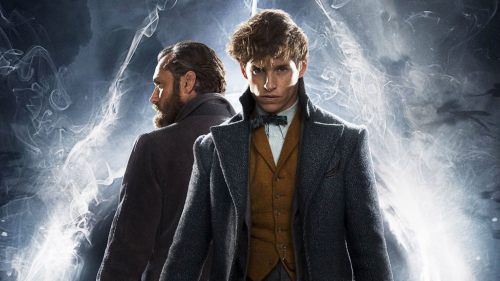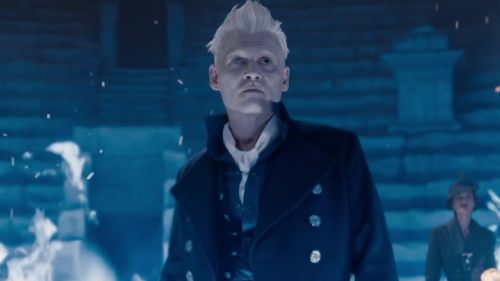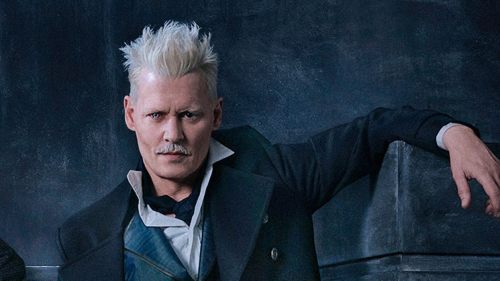Beast or Being: How Apathy Led to Voldemort’s Rise to Power
We're celebrating Fantastic Beasts and Where to Find Them with a week of Harry Potter content. Get your tickets here!
“My Hogwarts letter is late,” may as well be the unofficial anthem of “Magic” Tumblr. The ultimate Harry Potter meme, it has been decorated, re-interpreted and reblogged: it has become a symbol of hope that inadvertently expresses the underlying tension that exists between the Muggle world and the magical realm. If Rowling’s world is, in fact, real, most of us have not been chosen and never will. Muggles like us are cut off from a whole other reality and there is nothing we can do. When we dream of being a part of the magical world, it’s because we want access to the power that comes with being a witch or a wizard. If you read Harry Potter closely, being a squib, or a goblin, or a house elf does not hold the same appeal. We don’t want to be simply a magical being, because no one wants to be lesser than.
J.K. Rowling never intended for the magical world to be a utopia. Loaded with darkness, the premise of the Harry Potter series is founded on death: Harry’s parents were brutally murdered by a fascistic magical dictator and Harry became “the boy who lived.” A miracle of divine consequences, even in the world of magic the supernatural hovers above the known magical realm where pixies and dragons are real, but no one can explain why Harry Potter survived. This divine moment could only exist in a world where, truly, magic has become mundane and bureaucracy rather than wonderment rules. The underlying normality of the magical realm brings us closer to it -- in a world where magic was real, even it would become pedestrian.
In Fantastic Beasts and Where to Find Them, a textbook used at Hogwarts, a brief history of the study of Fantastic Beasts is outlined in the opening chapters. Court cases and public debates are cited regarding the minutiae of what qualifies as a “beast.” Historical analysis and shifting ideals emerge. Mirroring, in many ways, early ethnographic studies that still qualified tribes or races of human as less than their European counterparts, over time a new classification emerges: the magical being.
A being, it has been judged, is “a creature worthy of legal rights and a voice in the governance of the magical world.” Those that classify as beings include: house elves, goblins, vampires, hags and werewolves. Centaurs and merpeople were offered the status of beings but refused. Just like in our universe, however, which seems continually embroiled in debate, this designation does not satisfy everyone. Fringe groups search to qualify muggles as beasts, centaurs refuse their status as beings and the legal definitions do very little to quell inequality. The social order is laid out: beast or being, if you’re not a witch or wizard your opportunities will be limited.
That’s why the centaurs’ insistence to be referred to as beasts is particularly poignant: they refuse to play the game of classification, in full awareness of the folly of witches and wizards. Viewing the classification system as a violent oppression, they prefer to be lumped together with dragons and pixies rather than man. Continually presented as dangerous and unsociable, their overt resistance is painted as aggression. We are never presented with outright evidence of centaur violence or cruelty, but they are nonetheless presented as dangerous -- perhaps more for their ideology than their physicality.
Over the course of the Harry Potter franchise, the politics of inequality bleed into the centrality of the plot. Dobby the house elf, for example, emerges as one of the most beloved and important magical beings over the course of the series. In the Magical Realm, House Elves are fiercely loyal and are basically slaves to their families. With an impulse towards self-flagellation in any instance of disobedience, the continued servitude of house elves is excused because many in the magical realm insist house elves are “happier” as slaves.
In Harry Potter and the Goblet of Fire, Hermione decides to start a civil rights movements to free the house-elves from servitude. In founding S.P.E.W. (Society for the Promotion of Elfish Welfare), she attempts to right what she sees as a huge social wrong. Notably, Hermione was born to Muggle parents and, as an outsider, seems more acutely aware of the systems of inequality built up within the magical realm. Perhaps as a victim of that same hierarchy which sees her as lesser than in some circles due to being Muggle-born, she is particularly sympathetic to the archaic social systems in place.
When you start to break down these systems, it’s clear that this underlying inequality plaguing the magical realm is a throughline of the franchise. The apathy of most witches and wizards inadvertently fuels the atmosphere for Voldemort's second rise to power. As Voldemort's supporters rise in power within Hogwarts and the Ministry, most of the magical world does not speak out, as the fear of being expelled from the magical realm seems enough to keep most people quiet. In a fine twist, Rowling presents us a magical world that we could only dream of, only to ask if we would be willing to give up such a world to do the right thing, as Harry, Ron and Hermione are willing to do.
Rather than merely offering a fantastic world of escapism, Harry Potter ends up reflecting a society of incredible privilege and potential violence. The minority of racial purists can only rise to power through the political inaction of most magical peoples. Mirroring fascist movements of the twentieth century, the seeds of inequality within the different magical classifications seem to be one of the largest factors in Voldemort's second rise to power. Most witches and wizards, comfortable with the status quo and afraid to sacrifice their social position, are unwilling to speak out against obvious oppressive class systems. Even daring to not speak Voldemort's name suggests a world where it’s better to shy away from rather than to confront inequality.



